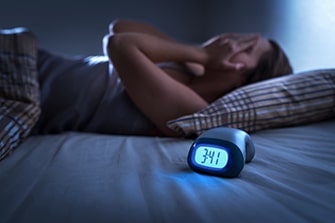New Sleep Guidelines to Keep Youth Healthy
Sleep is essential for overall health. Without regular age appropriate amounts of sleep, adolescents are at risk for developing a variety of conditions such as depression, anxiety, weight change, and sometimes insomnia. There may be noticeable behavioral changes when teens don’t sleep well, such as moodiness, experimentation with substance use and an increase in stress from school. Many physicians today inappropriately prescribe addictive medications for both kids and adults, which can easily lead to abuse and addiction, or at least increases the possibility.
While previous studies have shown that many patterns of addictions have roots in childhood, the most recent research strongly suggests that increasing sleep time could have an influence on preventing anxiety and depression, disorders that commonly co-occur with addiction. Several research studies have reinforced the importance of good sleep habits, especially for young people who are physically and mentally still developing.
One study by the University of Michigan found “teens prescribed anti-anxiety or sleep medication are up to 12 times more likely to abuse prescription drugs than those who had never been prescribed such medication.” A study by the University of Texas found “reduced quantity of sleep increases risk for major depression, which in turn increases risk for decreased sleep.” Another study by the University of Basel reported that “teenagers who used digital media at night had an increased risk for poor sleep and depressive symptoms.”
The National Sleep Foundation convened a broad range of scientific experts to recommend new sleep ranges for all age groups. Charles A. Czeisler, PhD, MD, chairman of the board of the National Sleep Foundation, chief of sleep and circadian disorders at Brigham and Women’s Hospital, and Baldino Professor of Sleep Medicine at the Harvard Medical School claimed:
“This is the first time that any professional organization has developed age-specific recommended sleep durations based on a rigorous, systematic review of the world scientific literature relating sleep duration to health, performance and safety.”
A summary of recommendations from The Sleep Foundation, for infants thru young adults includes:
- Newborns (0-3 months): 14-17 hours each day
- Infants (4-11 months): 12-15 hours
- Toddlers (1-2 years): 11-14 hours
- Preschoolers (3-5): 10-13 hours
- School age children (6-13): 9-11 hours
- Teenagers (14-17): 8-10 hours
- Younger adults (18-25): 7-9 hours (new age category)
Addiction is a growing public health concern and although getting good quality sleep on a regular basis will not guarantee a young person will never struggle with substance abuse, it does give the best opportunity for staying mentally healthy and alert. Sleep should be a priority for health, giving young people the best chance to develop into responsible adults.
The Best Call You Will Ever Make
Call Now to Speak Confidentially with an admission counselor.
https://link.springer.com/article/10.1007%2Fs10964-014-0176-x
https://sleepfoundation.org/how-sleep-works/how-much-sleep-do-we-really-need
